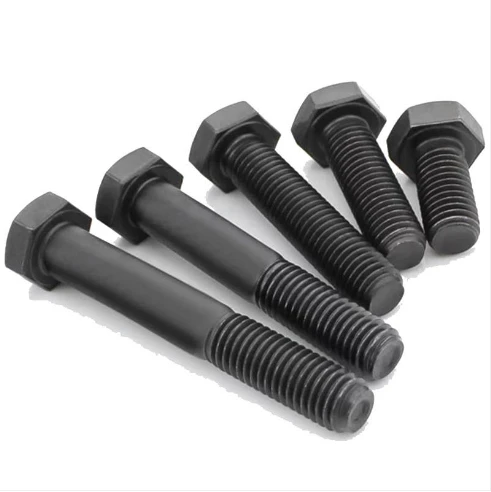Exporters of Bolts for Struts and Related Fasteners in Global Markets
Nov . 08, 2024 22:44 Back to list
Exporters of Bolts for Struts and Related Fasteners in Global Markets
Bolts for Struts A Key Component for Structural Integrity
In the world of engineering and construction, the importance of high-quality fasteners cannot be overstated. Among these fasteners, bolts play a critical role, particularly when it comes to struts. Struts are vital components used in various applications, from automotive design to architectural structures. This article will delve into the significance of bolts for struts, their specifications, and the role of exporters in ensuring quality.
Understanding Struts and Their Importance
Struts are structural elements designed to resist compressive forces, providing stability and support in various systems. They can be found in vehicles, aircraft, buildings, and bridges, and they play a crucial role in maintaining structural integrity. The effectiveness of struts relies heavily on the quality of the bolts used in their assembly.
Bolts used in strut applications must meet specific standards to ensure they can withstand the forces they will encounter in their respective environments. These bolts must be durable, resistant to corrosion, and able to endure significant stress without failing. Therefore, selecting the right type of bolt is essential for the overall performance and safety of the structure.
Types of Bolts for Struts
When discussing bolts for struts, several types come into play. The two most common are
1. Hex Bolts Typically used in applications where high strength is required, hex bolts feature a hexagonal head and can be tightened using a wrench. They are often made from high-strength materials like steel, stainless steel, or alloy grades.
2. Shoulder Bolts These bolts have a cylindrical section beneath the head that acts as a shoulder, providing a smooth surface for rotational movement or load distribution. They are particularly useful in applications requiring pivot points or adjustable arms.
bolts for struts exporters

Selection criteria for bolts can vary based on the specific application, but factors such as size, material, coating, and strength grade must be considered. Standardization plays a significant role in ensuring compatibility and reliability across various construction materials.
Importance of Quality in Exporting
For manufacturers and exporters of bolts for struts, quality assurance is paramount. The market is flooded with options, and while prices may vary significantly, compromising on quality is never advisable. High-quality bolts ensure that struts perform optimally and provide the required support and stability.
Exporters play a vital role in maintaining standards in the fastener industry. They must adhere to international quality standards such as ISO and ASTM. These organizations establish benchmarks that ensure products meet stringent safety and performance criteria. Consequently, they help reduce the risk of component failure, which can lead to catastrophic outcomes in construction or automotive applications.
The Role of Exporters
Exporters of bolts for struts are responsible not only for providing high-quality products but also for ensuring a seamless supply chain. They must navigate various challenges such as logistics, tariffs, and regulatory compliance while maintaining competitive pricing.
Furthermore, reputable exporters often offer technical support and expertise, helping customers choose the right products for their needs. This level of service is crucial for sectors that demand precision and reliability in materials, as it assures manufacturers that their strut components will function as intended under various conditions.
Conclusion
In summary, bolts for struts are an essential component of any structure requiring stability and support. The choice of bolt type and quality can significantly impact the performance and safety of struts in various applications. Exporters play a fundamental role in this supply chain, ensuring that high-quality materials are available to manufacturers globally. As the demand for robust engineering continues to grow, the importance of reliable bolts for struts—and the expertise of those who supply them—will only increase. Thus, investing in quality fasteners is not just a choice but a necessity for anyone looking to secure the integrity of their structures.
Latest news
-
High-Quality Panel Stud Bolt Reliable Panel Stud Bolt Factory & Suppliers
NewsJul.08,2025
-
High-Precision Fine Thread Locknuts Manufacturer & Supplier Custom Solutions
NewsJul.08,2025
-
PH Imperial Stud Bolt – High Strength Fasteners from Leading Supplier & Factory
NewsJul.07,2025
-
High-Quality Allen Wrench Bolts Leading Factory, Company & Suppliers
NewsJul.07,2025
-
Wholesale Ball Stud Bolt - High Quality Supplier & Factory Price Reliable Wholesale Ball Stud Bolt Company
NewsJul.06,2025
-
High-Strength Alloy Bolts Manufacturer & Supplier Quality Alloy Fasteners Factory
NewsJul.06,2025
